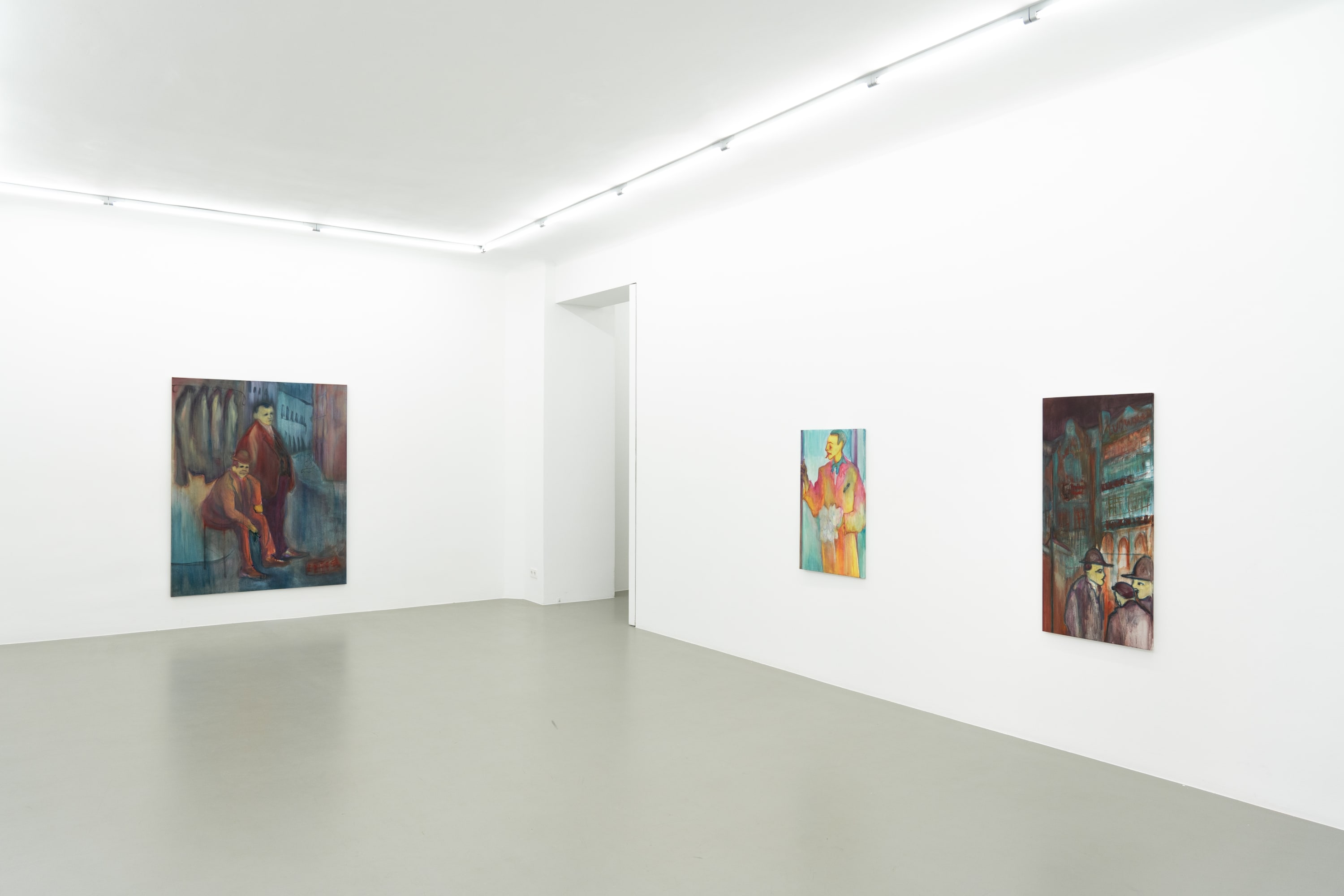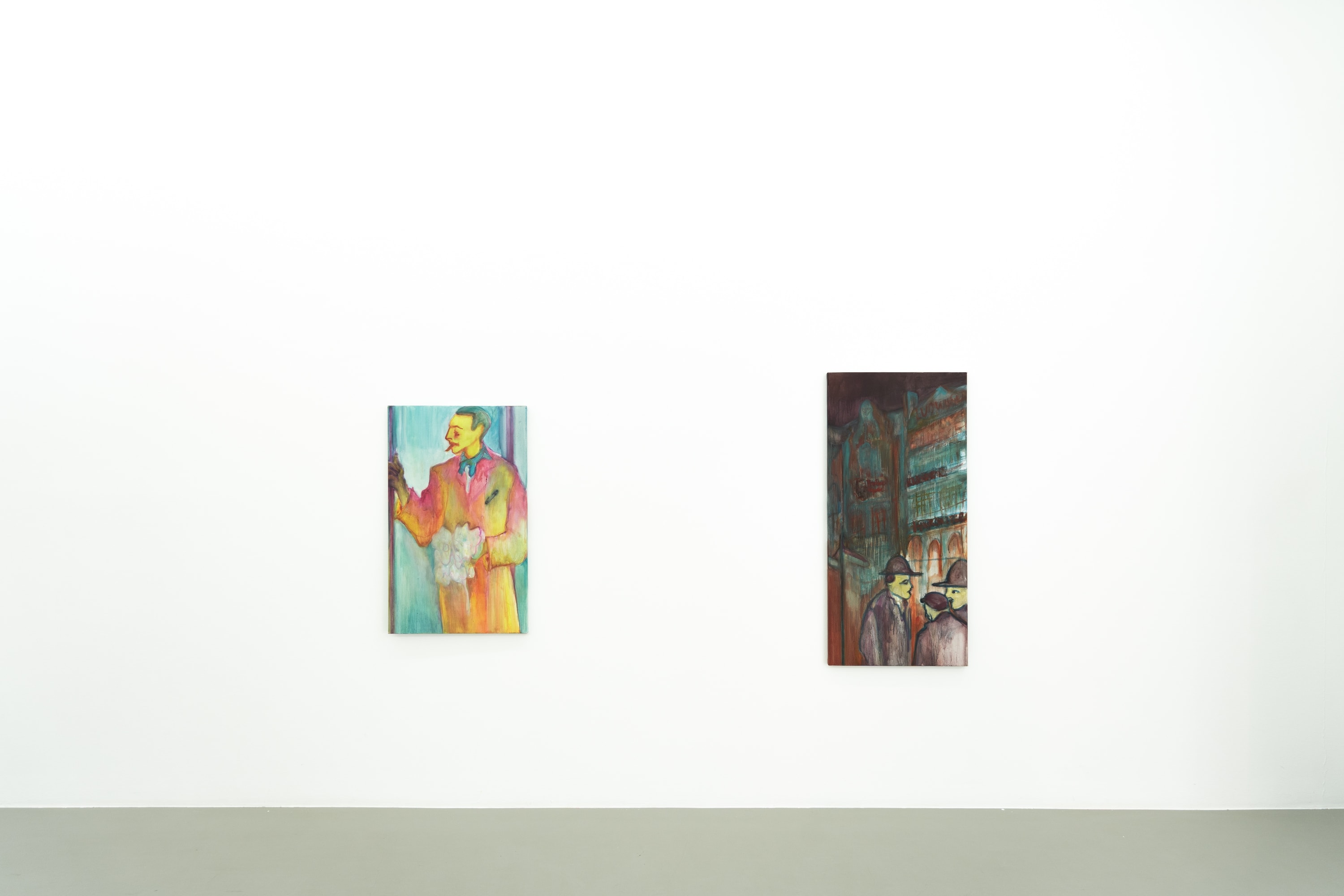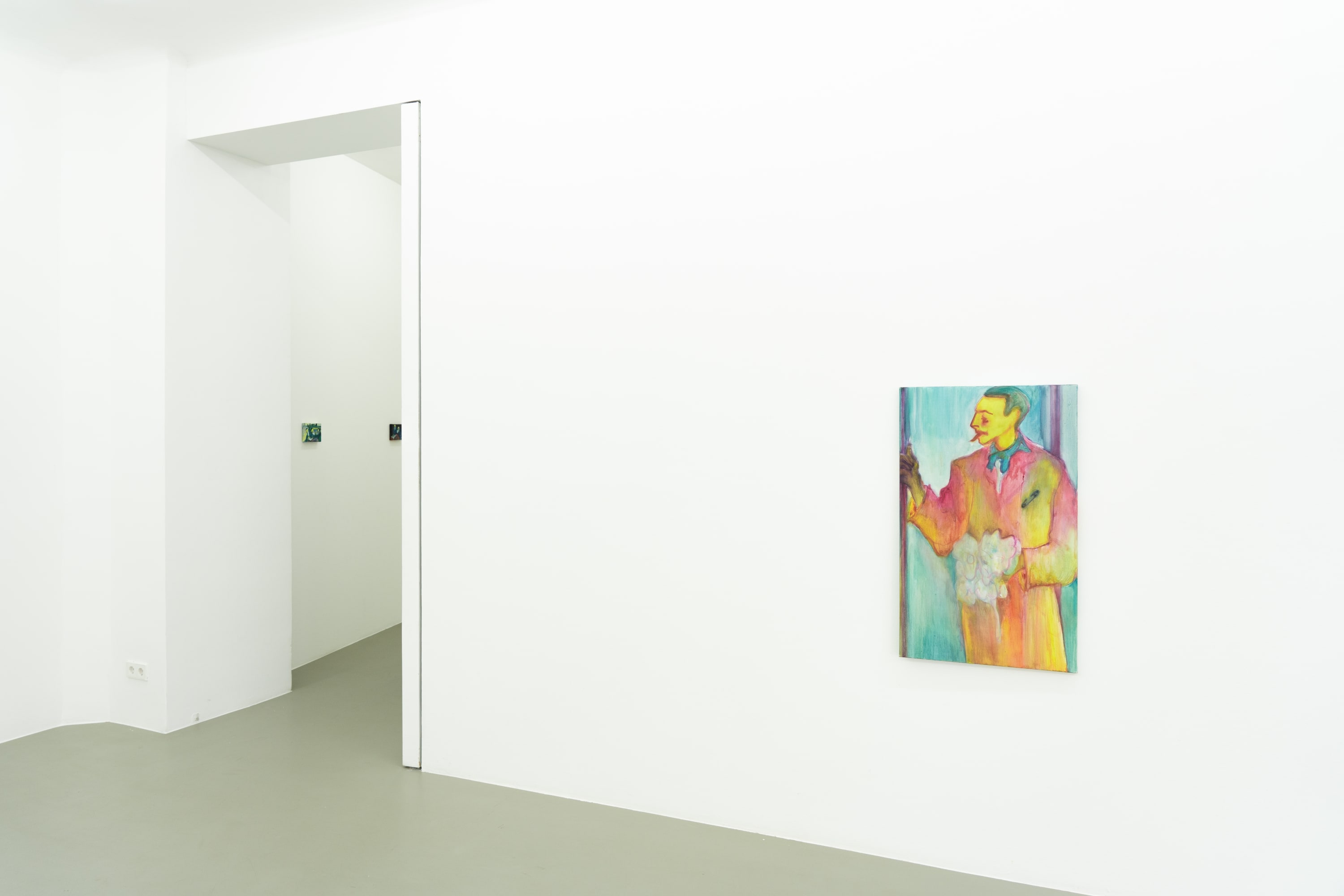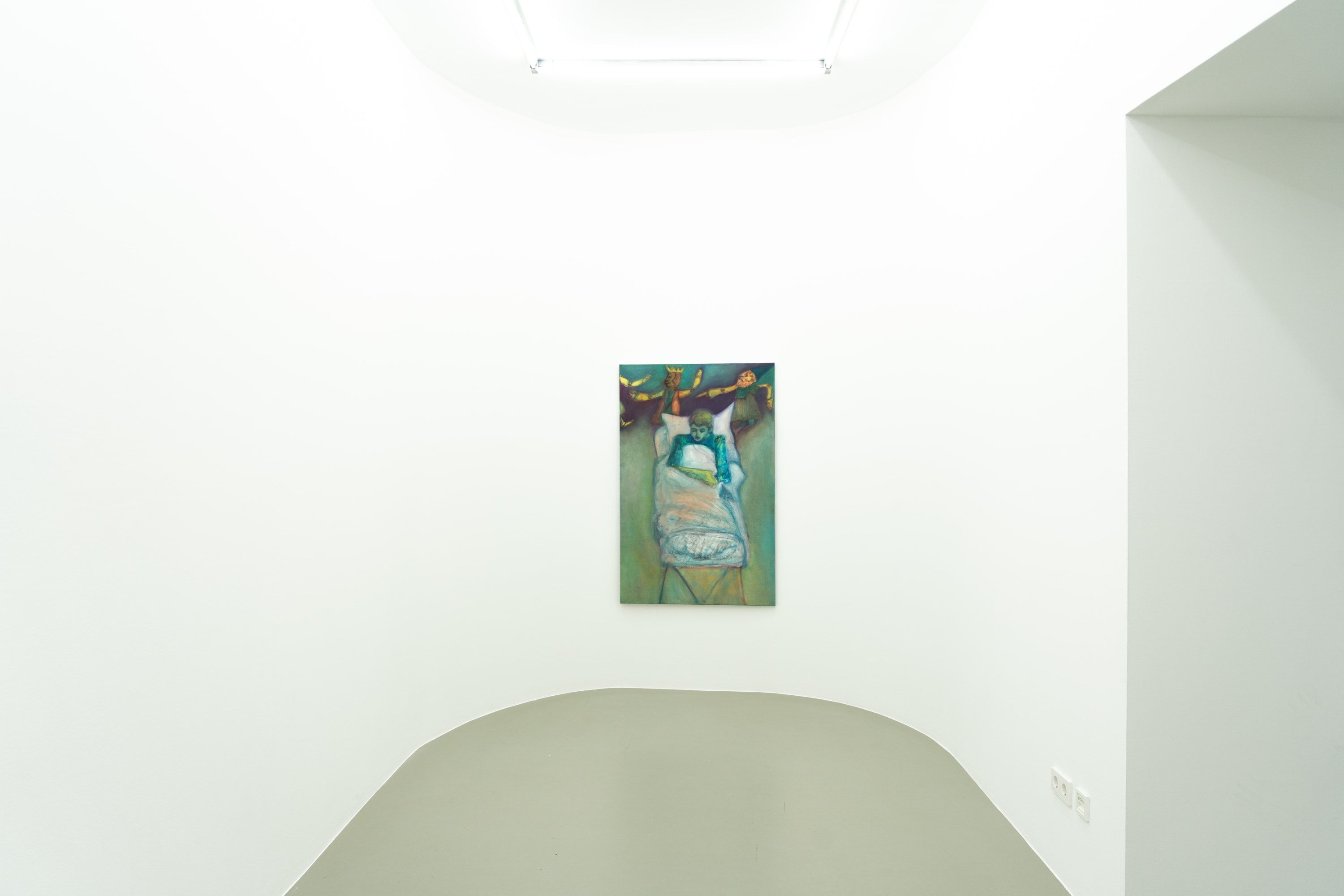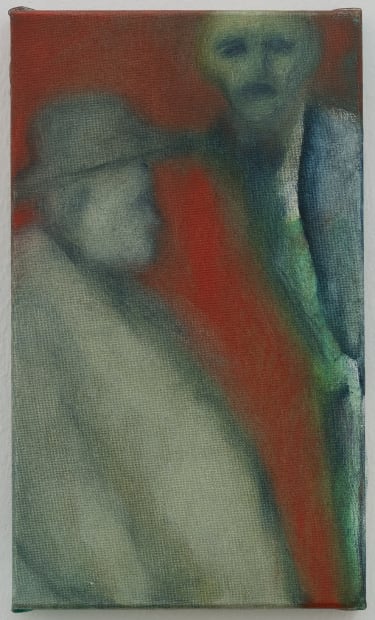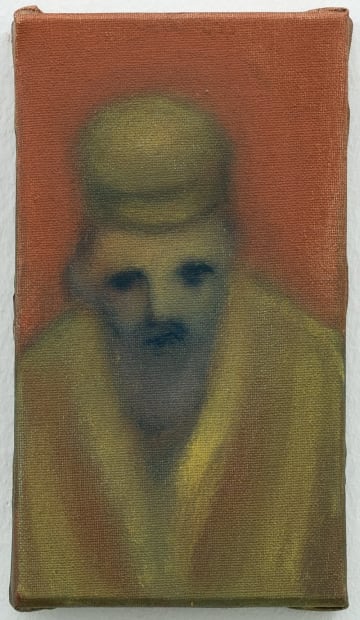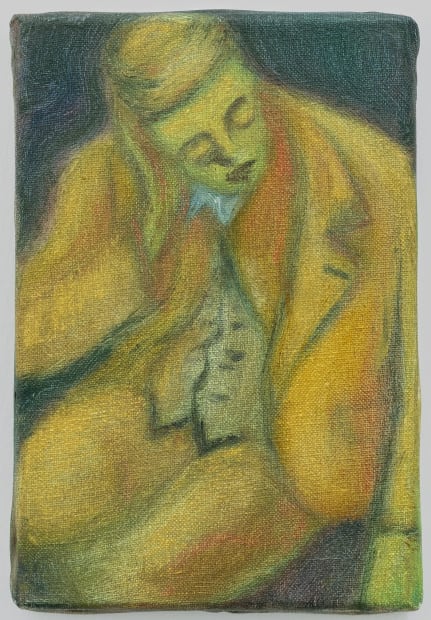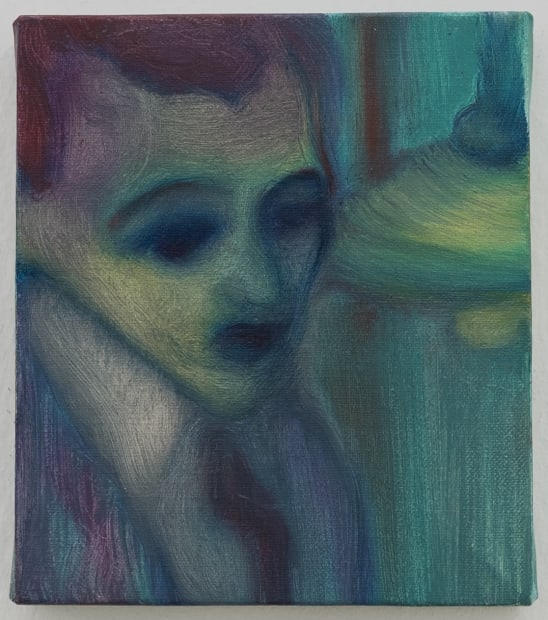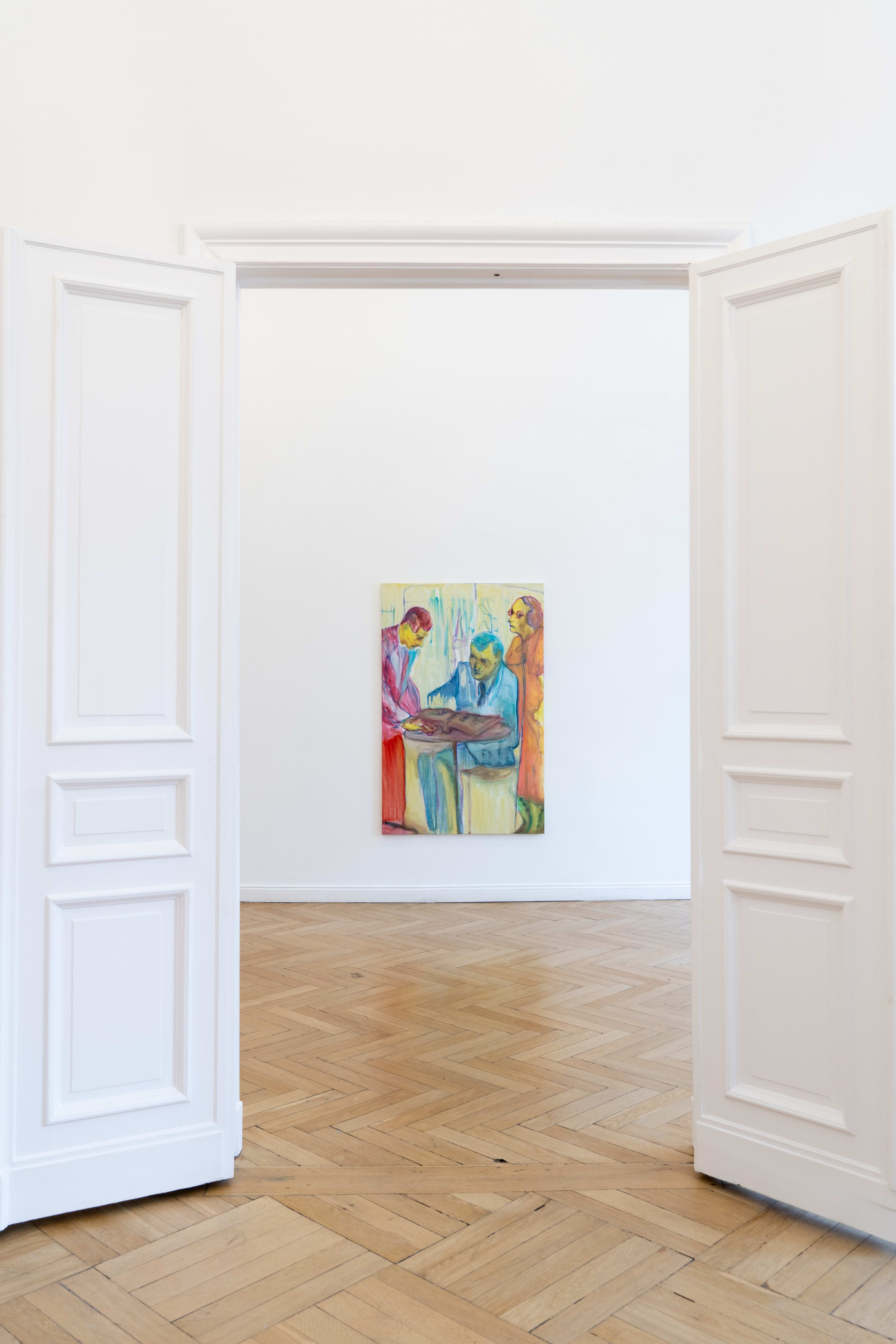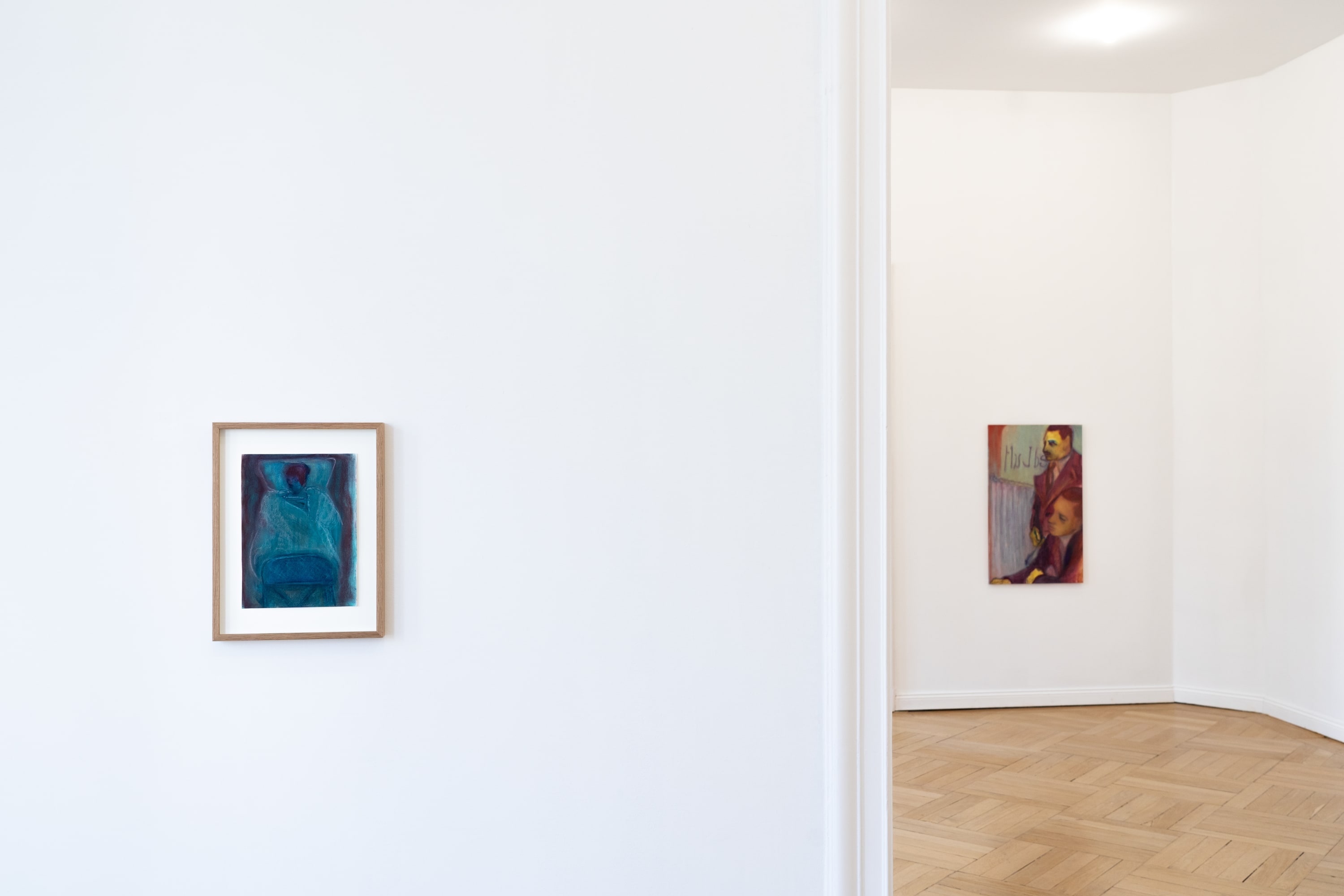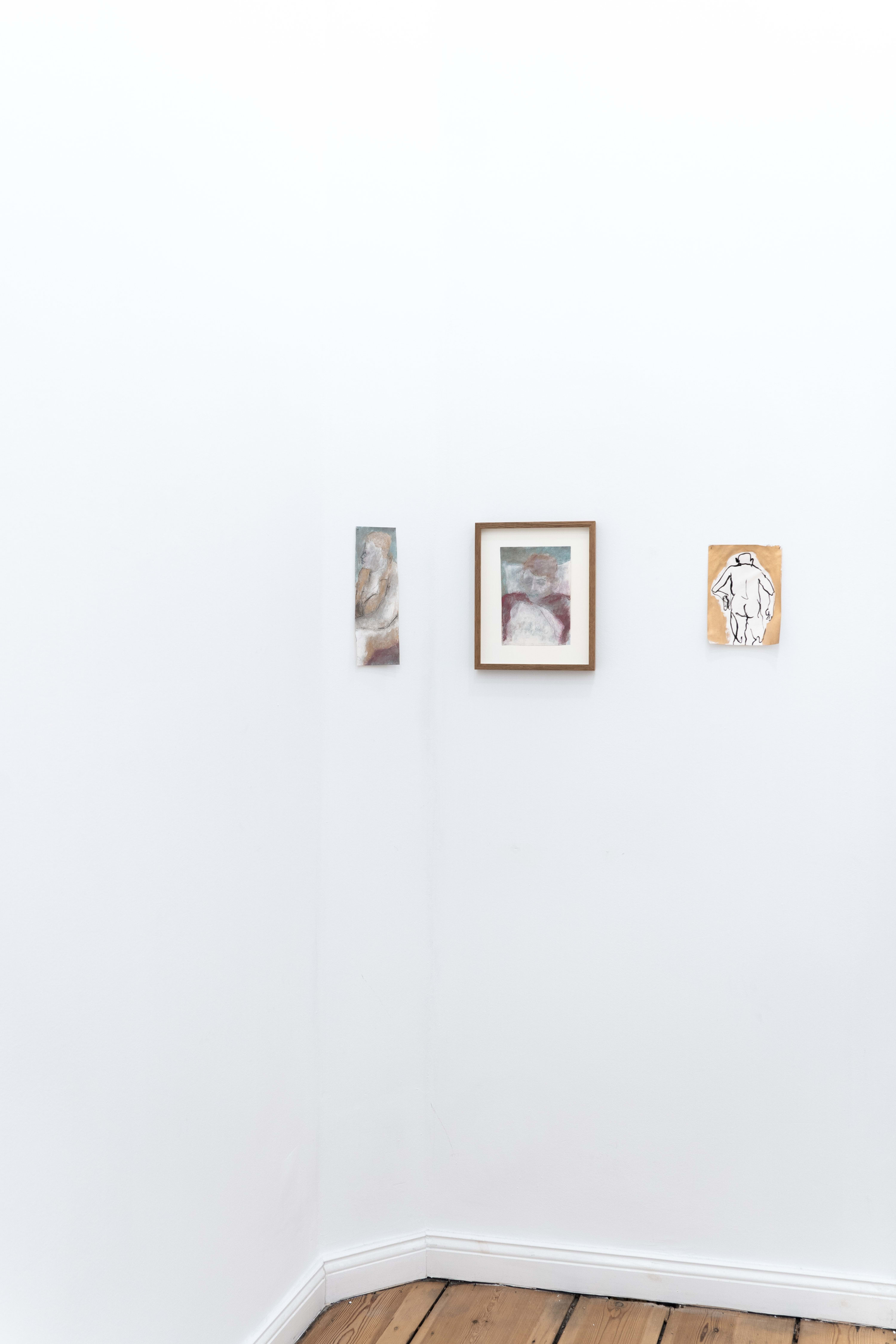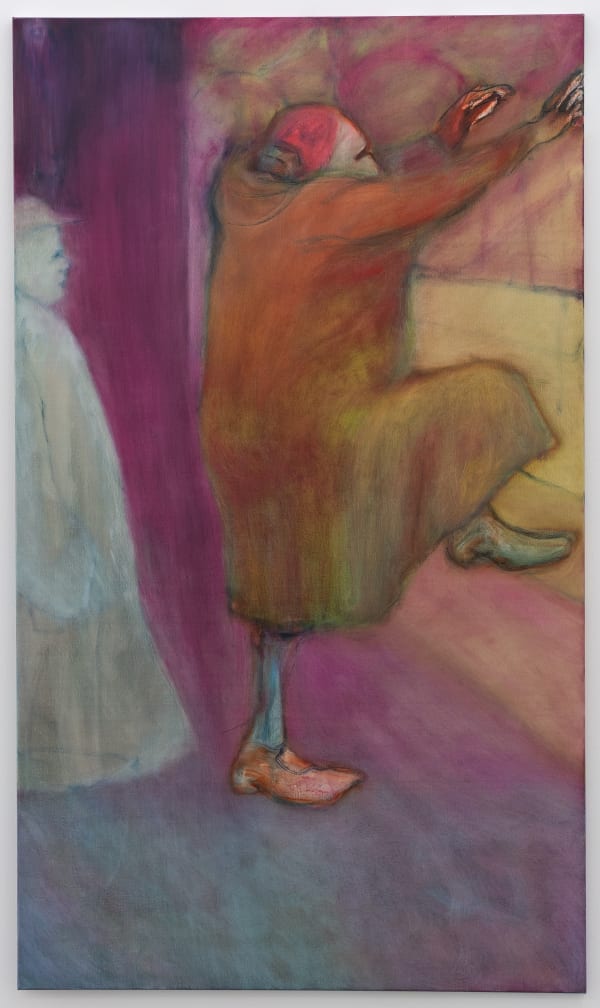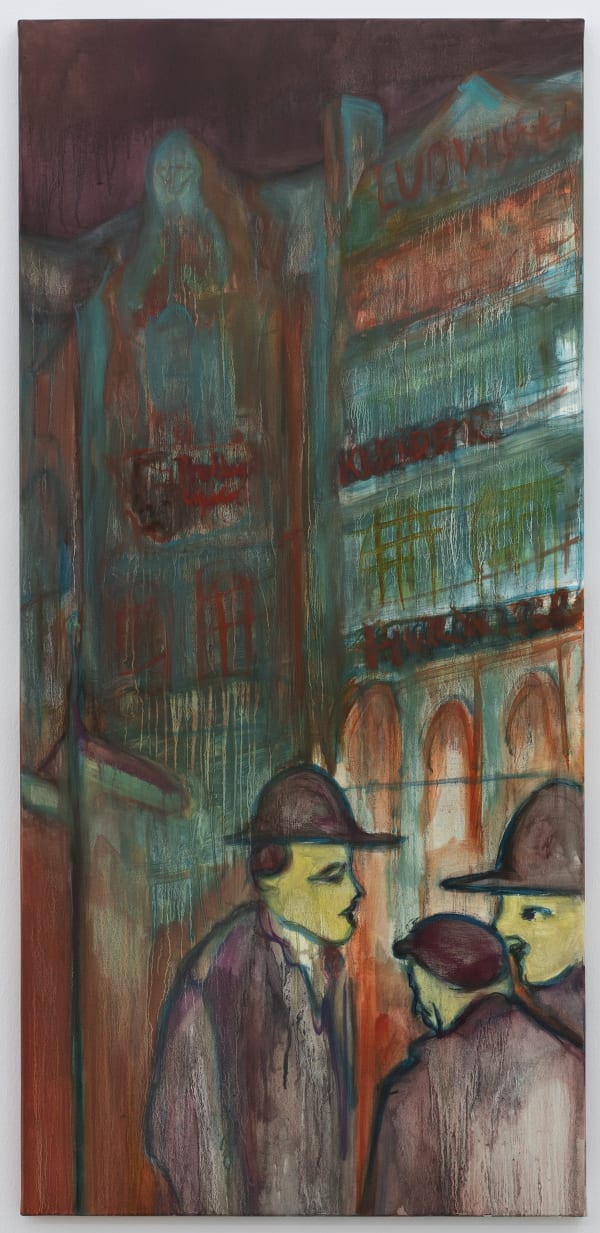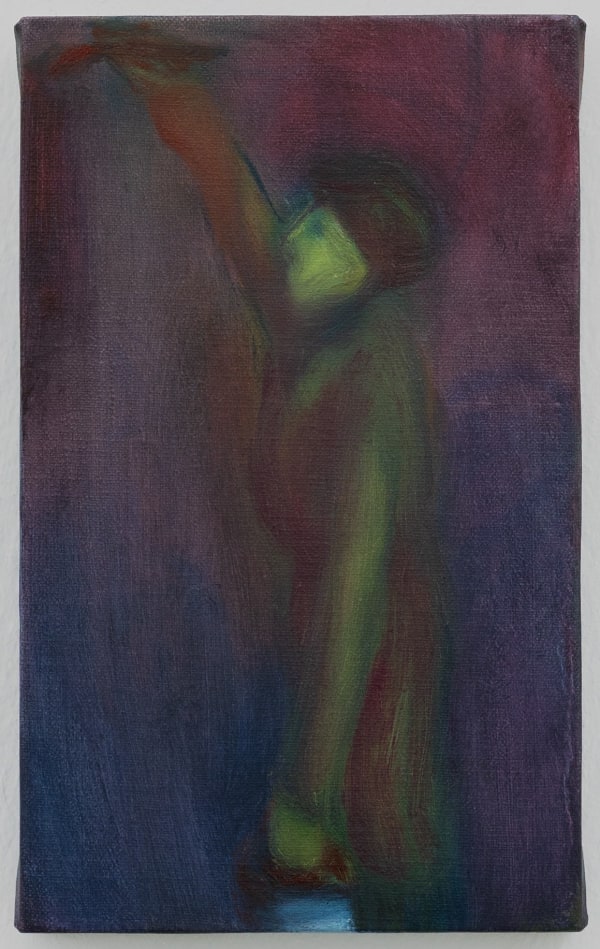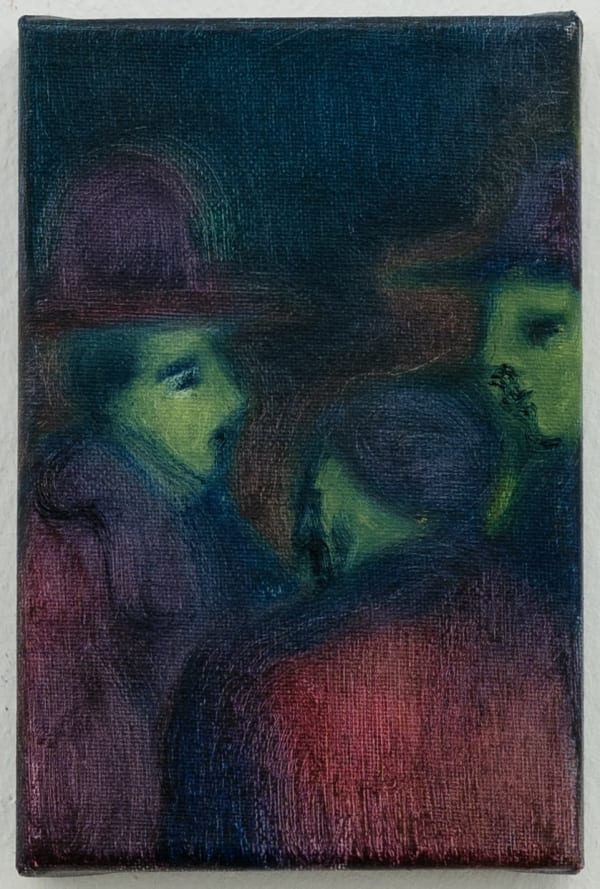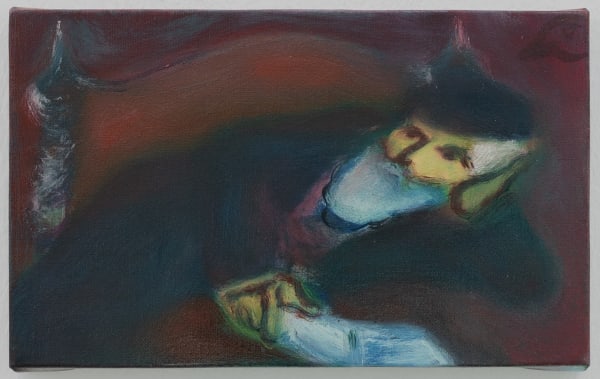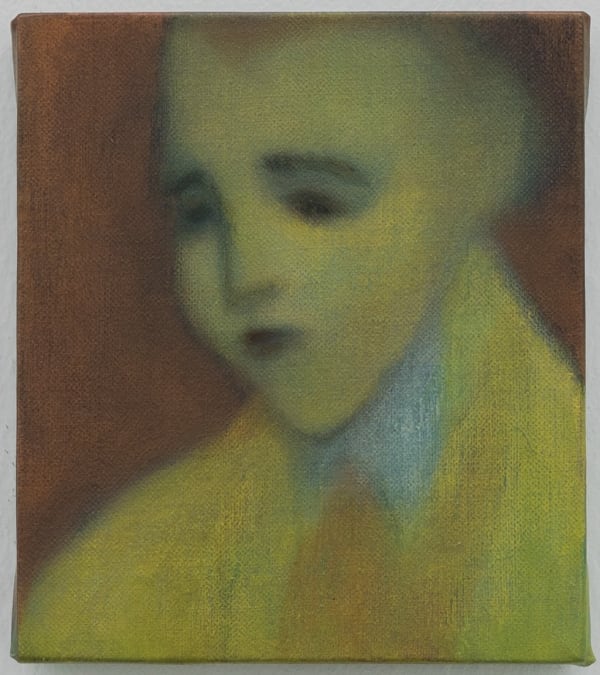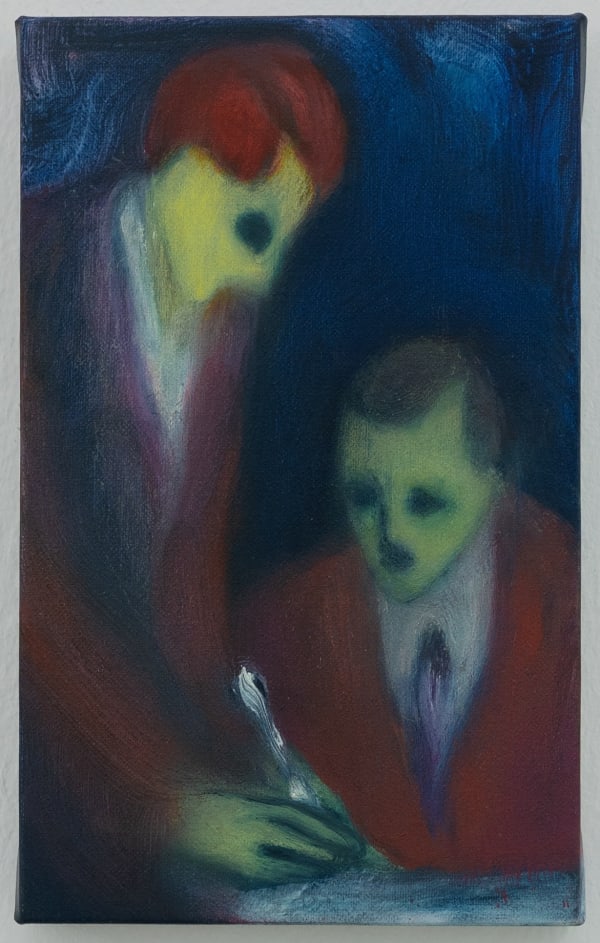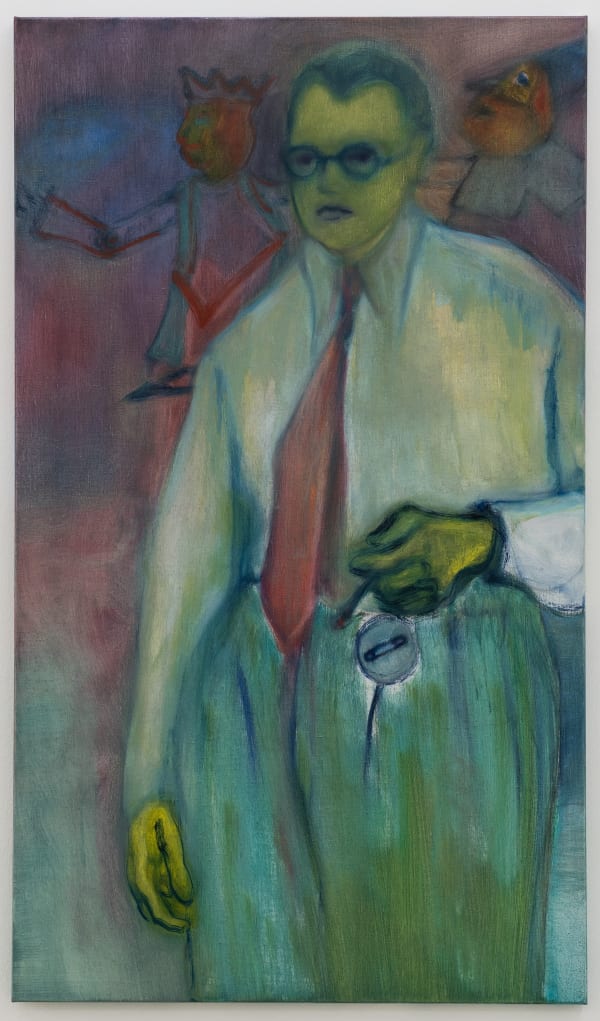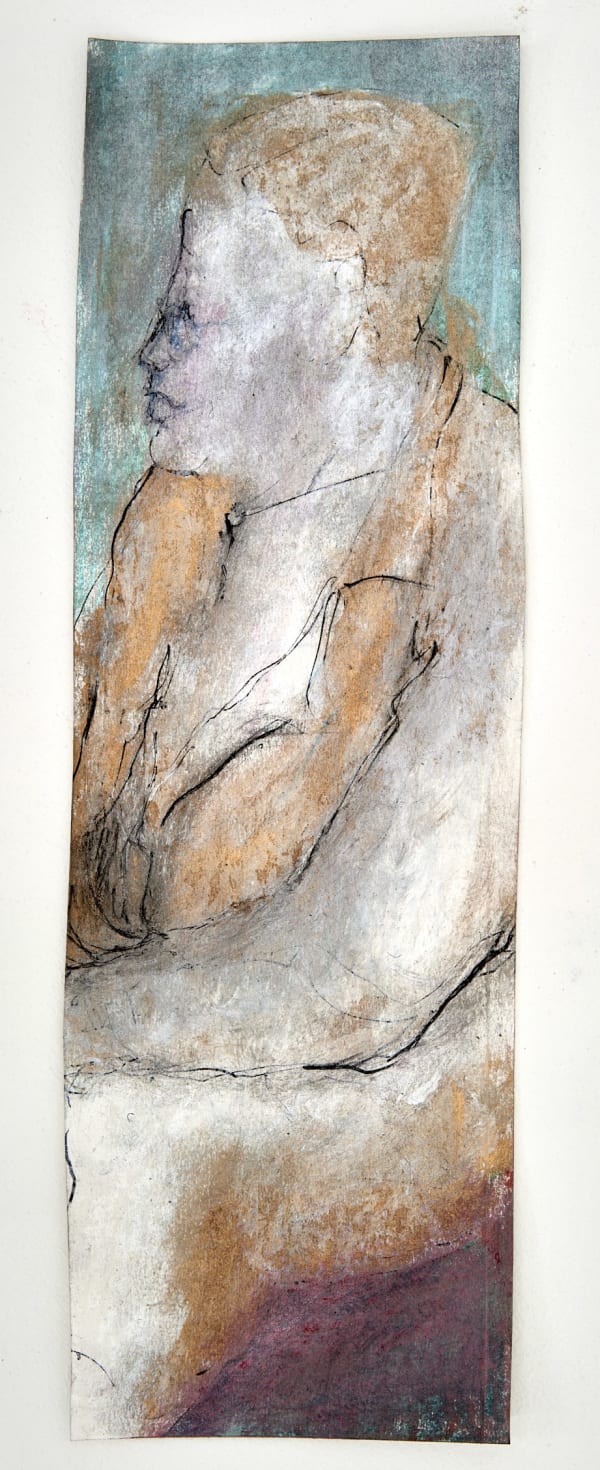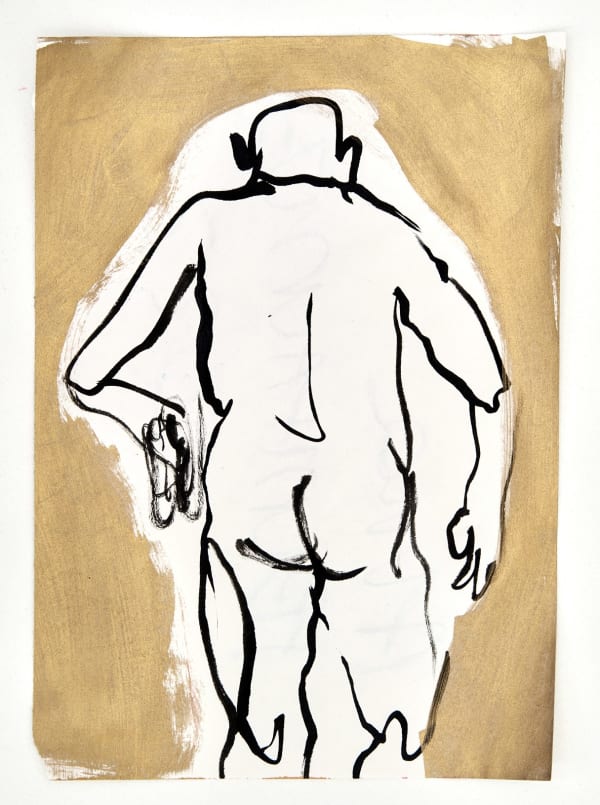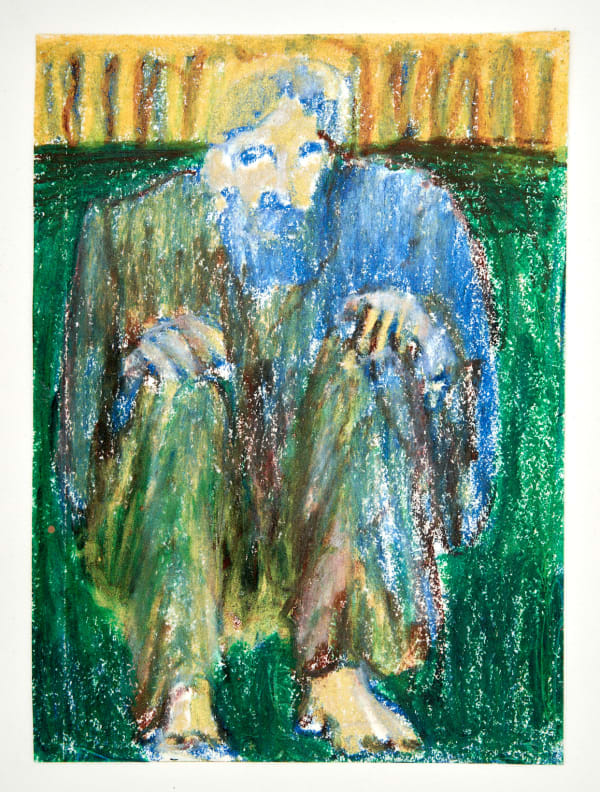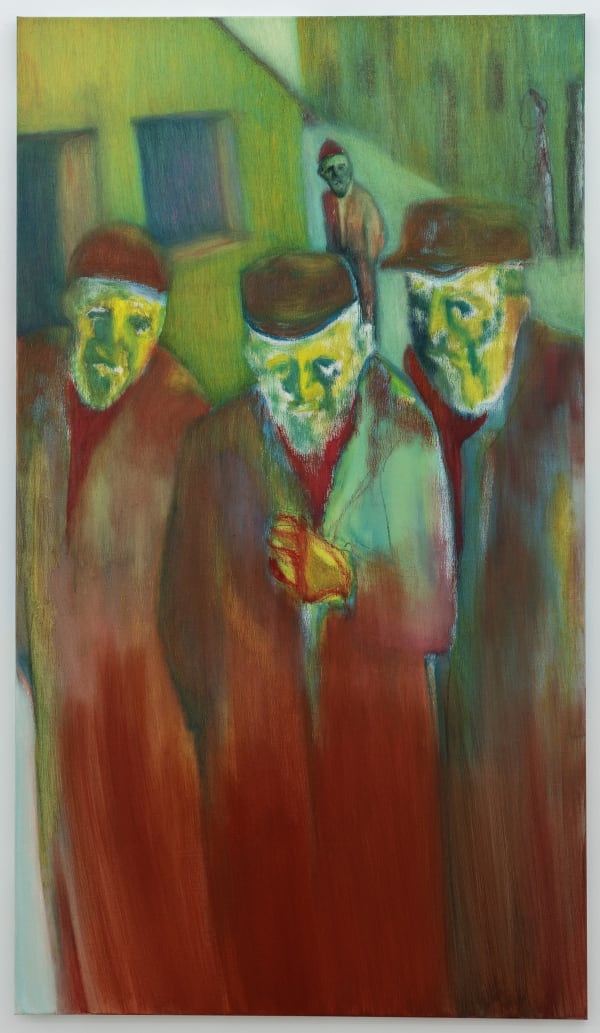-
"Archive fever is an irresistible fever to interpret traces, to give them meaning and to prefer one trace over another. Therefore, to prefer to forget is not only to prefer to keep. The archive […] is not a matter of the past, it's a matter of the future; a matter of love." (Jacques Derrida)
-
-
Alma Feldhandler's paintings harbour feelings that cannot be named without the risk of collapse. They are filled with wounded creatures, tattered existences and anxious forms that seem to be waiting in the corridors of time. The boy on his bed knows a thing or two about that. Above him, puppets perform a frightening dance, but this doesn't detract from the strange gentleness emanating from his convalescent body. Who's the captain of all these boys of death? Who commands these figures that pass through my body?
-
This raises the question of painting. The question of the nature, function and role of painting. Because it seems obvious to me that Alma Feldhandler's paintings and drawings are not simply the transposition of a phantom onto another surface using a different medium. There is something more secretive at play in the lines and colours; something that achieves, I believe, a genuine transmutation of the subjects represented. It is as if - using phantoms as a point of reference - Alma Feldhandler is not trying to rewrite these missing books but to rediscover their texture, their tonality, their unique way of resonating and being world-building worlds. There is something about her that almost resembles a (spiritual) medium, but in a gentle, silent way; she doesn't force anything, doesn't coerce anything, simply lets things happen. This explains why there is something oddly energising about the brilliance of Alma Feldhandler's work: as if painting, by virtue of its distinctive qualities, was able to use these phantoms to reach back to the actual reality of the scenes depicted. -
-
In this way, Alma Feldhandler collects these 'ultra-phantoms' of sorts - frail creatures signalling that something is missing from the shelves of this strange library, or to be more precise, that everything is missing, although not everything has actually disappeared. However, Alma's approach does not end with this act of collection, but rather finds its point of departure there. I imagine her walking through Berlin, wearing a heavy woollen coat with pockets full of phantoms. Strangely, these phantoms make her feel lighter, even though this lightness is lined with an ancient sadness. Affixed to the walls of her studio, they form a host of missing or lost creatures. The melancholy expressed here is not so much that of a painter succumbing to the ailments of phantoms as she moves from one archive to the next as it is that of the painted creatures themselves, who have come from afar to become part of our lives and help us transform the world. Alma Feldhandler's paintings do not document this aspiration, but rather re-enact it in their own way. That is why each canvas, each drawing, has the power to transport me to a world where colourful creatures, each going about their own business, conspire to realise the tenderest redemption. When faced with such emotions, how could you not feel completely helpless?
-
-
Tradition, like angels, is about passing something on. But every act of passage implies a transformation. Tradition is always a metamorphosis, and angels are always experts in this subject. Mutant, winged creatures, moving in cohorts towards better worlds. That's why, when I look at these painted figures, I feel a rustle of wings pass beneath my sternum.
You can find the full exhibition text by Romain Noël here.
Alma Feldhandler (born 1996 in Trappes, France) graduated with a BA from the London College of Communication, University of the Arts London (2017) and postgraduated with a DNSEP from the École Nationale Supérieure d'Arts de Paris Cergy, Paris (2021). Her recent exhibitions are Mantel Mann (2023); The Rings of Saturn, (2023) and Mités (2022) at Galerie Derouillon, Paris.
-
-
 Alma Feldhandler, Old woman with two shoes, 2023
Alma Feldhandler, Old woman with two shoes, 2023 -
 Alma Feldhandler, Candlestick crooked, 2023
Alma Feldhandler, Candlestick crooked, 2023 -
 Alma Feldhandler, Sleepy, 2023
Alma Feldhandler, Sleepy, 2023 -
 Alma Feldhandler, Coat vigil with Sleepy and a dog, 2024
Alma Feldhandler, Coat vigil with Sleepy and a dog, 2024
-
 Alma Feldhandler, Lutetia, 2024
Alma Feldhandler, Lutetia, 2024 -
 Alma Feldhandler, Reunion by the Ludwig Lesser Kaufhaus, 2024
Alma Feldhandler, Reunion by the Ludwig Lesser Kaufhaus, 2024 -
 Alma Feldhandler, After an unknown painter, Bossy, Sleepy, Angry and Worry, 2024
Alma Feldhandler, After an unknown painter, Bossy, Sleepy, Angry and Worry, 2024 -
 Alma Feldhandler, Who Is the Captain of All These Boys of Death?, 2023
Alma Feldhandler, Who Is the Captain of All These Boys of Death?, 2023
-
 Alma Feldhandler, Painter, Berlin, 2024
Alma Feldhandler, Painter, Berlin, 2024 -
 Alma Feldhandler, Jackie Tabick, Britain’s First Female Rabbi, 2023
Alma Feldhandler, Jackie Tabick, Britain’s First Female Rabbi, 2023 -
 Alma Feldhandler, Sara & Israël, 2023
Alma Feldhandler, Sara & Israël, 2023 -
 Alma Feldhandler, Allumette, after Jakob Steinhardt’s painting, 2023
Alma Feldhandler, Allumette, after Jakob Steinhardt’s painting, 2023
-
 Alma Feldhandler, Cheers, 2024
Alma Feldhandler, Cheers, 2024 -
 Alma Feldhandler, Painter, 2024
Alma Feldhandler, Painter, 2024 -
 Alma Feldhandler, Reunion, 2024
Alma Feldhandler, Reunion, 2024 -
 Alma Feldhandler, After Jankel Adler’s Painting, with bird, 2024
Alma Feldhandler, After Jankel Adler’s Painting, with bird, 2024
-
 Alma Feldhandler, Kitaj split, 2023
Alma Feldhandler, Kitaj split, 2023 -
 Alma Feldhandler, Untitled, 2024
Alma Feldhandler, Untitled, 2024 -
 Alma Feldhandler, Poli, 2023
Alma Feldhandler, Poli, 2023 -
 Alma Feldhandler, Who’s the Captain…with Pastel, 2024
Alma Feldhandler, Who’s the Captain…with Pastel, 2024
-
 Alma Feldhandler, Krawattennadel, 2024
Alma Feldhandler, Krawattennadel, 2024 -
 Alma Feldhandler, Getups, 2024
Alma Feldhandler, Getups, 2024 -
 Alma Feldhandler, Tailors not butchers! Staff, 2024
Alma Feldhandler, Tailors not butchers! Staff, 2024 -
 Alma Feldhandler, Allumette, 2023
Alma Feldhandler, Allumette, 2023
-
 Alma Feldhandler, Chemist, 2023
Alma Feldhandler, Chemist, 2023 -
 Alma Feldhandler, Who’s the Captain...Chubby Boy with Glasses, 2024
Alma Feldhandler, Who’s the Captain...Chubby Boy with Glasses, 2024 -
 Alma Feldhandler, Who’s the Captain...Blanket, 2024
Alma Feldhandler, Who’s the Captain...Blanket, 2024 -
 Alma Feldhandler, After Depardon’s Picture, 2024
Alma Feldhandler, After Depardon’s Picture, 2024
-
 Alma Feldhandler, Untitled, 2024
Alma Feldhandler, Untitled, 2024 -
 Alma Feldhandler, Zimtschere, 2024
Alma Feldhandler, Zimtschere, 2024 -
 Alma Feldhandler, Staff of Leopold Seligman, pre-London, 2024
Alma Feldhandler, Staff of Leopold Seligman, pre-London, 2024 -
 Alma Feldhandler, Cross Puppets, 2023
Alma Feldhandler, Cross Puppets, 2023
-
Alma Feldhandler, "Who Is the Captain of All These Boys of Death?": Meyer Riegger, Berlin
Past viewing_room
